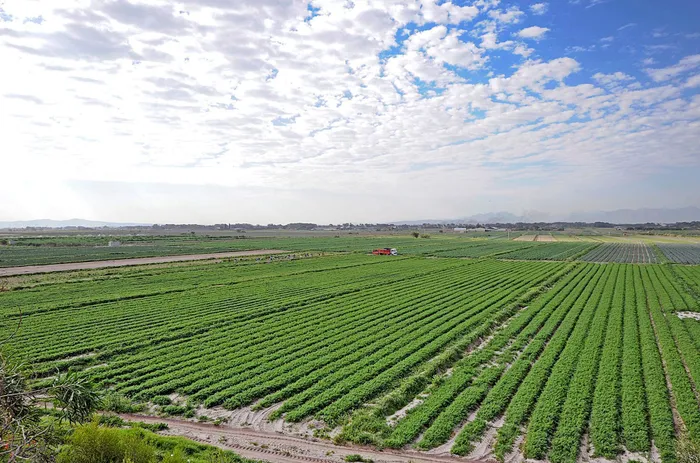Hotter summer and unpredictable rainfall: What South African farmers need to know

Agriculture Department warns of challenging summer conditions for farmers.
Image: Leon Lestrade/African News Agency (ANA)
The Department of Agriculture, Land Reform and Rural Development (DALRRD) has urged farmers across South Africa to prepare for a challenging 2025/26 summer season marked by hotter conditions and uneven rainfall patterns.
According to the department’s latest Agriculture Climate Advisory, issued on October 28, 2025, the South African Weather Service’s Seasonal Climate Watch predicts above-normal rainfall for the north-eastern regions of the country during late spring and summer. It warns that “parts of Mpumalanga and Limpopo may receive below-normal rainfall during this period.”
The department cautioned that while minimum and maximum temperatures are expected to be above normal in most parts of the country, the southwestern coastal areas are likely to experience slightly below-normal maximum temperatures.
“As winter concluded and spring began, rain fell in parts of both the summer and winter rainfall areas,” said departmental spokesperson Moses Rannditsheni.
“Winter crops are in good condition; however, the Southern Cape is facing drought stress that will impact crops negatively.”
Farmers in summer rainfall regions have been advised to carefully time their planting.
“Farmers are advised to follow the weather and climate forecasts regularly to make informed decisions and wait for sufficient moisture before planting,” Rannditsheni said.
To mitigate the expected heat and drought stress, farmers are reminded to conserve natural resources in accordance with the Conservation of Agricultural Resources Act, Act No. 43 of 1983.
The advisory also highlights the importance of balancing livestock numbers with available grazing.
“Livestock should continually be kept in balance with the carrying capacity of the veld,” Rannditsheni advised.
“Farmers are further encouraged to provide additional feed and relevant licks to livestock to avoid mortalities, as well as ensure sufficient water points and shelter during bad weather.”
The department warned that veld conditions in summer rainfall areas will remain dry until sufficient rain has fallen. As a result, the construction and maintenance of fire belts and adherence to veld fire warnings should be prioritised.
With episodes of heatwaves and localised flooding likely during the season, farmers are urged to have mitigation measures in place.
“Farmers are encouraged to implement strategies provided in the early-warning information issued,” Rannditsheni said.
DALRRD also reaffirmed its commitment to supporting the sector through awareness and capacity-building efforts.
“The department will partner with all relevant stakeholders to continue raising awareness in the sector and capacitating farmers on understanding, interpreting, and utilising early-warning information for disaster risk mitigation and response,” said Rannditsheni.
IOL News
Related Topics: